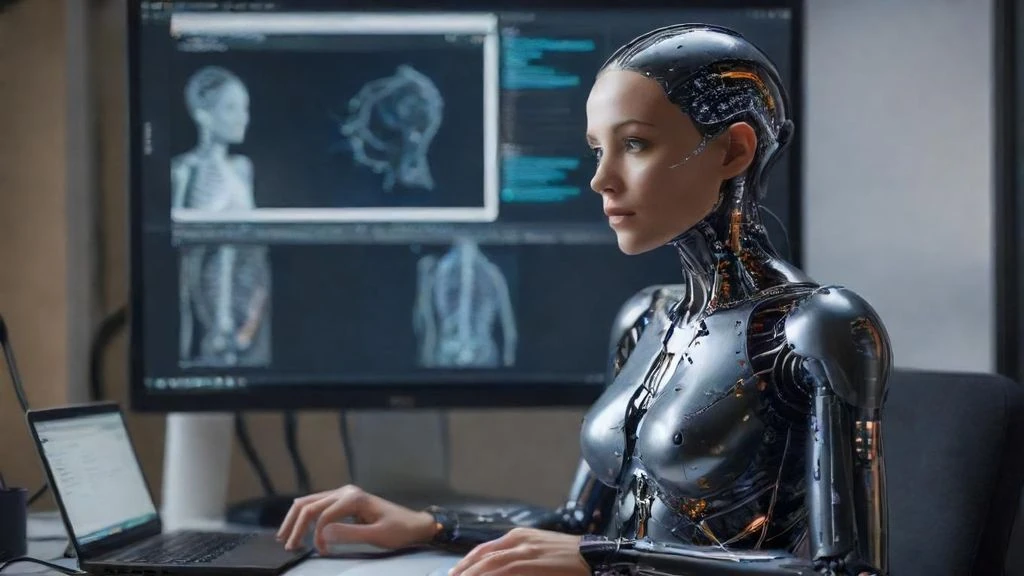Generative AI & Human-Machine Synergy for a Smarter Future
12 Nov 2025 10:35 — Written by Lorenzo Pellegrini



Lorenzo Pellegrini
12 Nov 2025 10:35
Generative AI & Human-Machine Synergy: Collaborating for a Smarter Future
The rise of generative Artificial Intelligence (AI) is fundamentally reshaping our interaction with technology and the nature of work itself. Far from being a force that simply replaces human capabilities, generative AI is emerging as a powerful collaborator, enhancing creativity, accelerating innovation, and transforming industries. This new era emphasizes a synergy between humans and machines, where advanced AI tools augment our skills, allowing us to focus on uniquely human attributes like critical thinking, creativity, and empathy.
The Evolving Role of Generative AI
Generative AI refers to a subset of artificial intelligence designed to create new content, ranging from text, code, and voice to images, videos, and complex simulations. Unlike traditional AI focused on analysis, generative AI produces novel outputs based on patterns learned from vast datasets. This capability is driving significant advancements across various sectors, from content creation and marketing to product design and scientific research. For instance, AI can now generate realistic images, compelling written content, and even functional code, often indistinguishable from human creations.
Synergy Over Replacement: The Human-Machine Partnership
A prevailing narrative suggests that AI will lead to widespread job displacement, with some projections indicating that generative AI could automate up to 300 million full-time jobs globally. However, a more nuanced perspective highlights the potential for human-AI synergy, where AI augments rather than replaces human workers. This collaborative approach allows AI to handle repetitive tasks and data analysis, freeing humans to concentrate on their innate strengths. Workday research indicates that 83% of employees believe AI will make uniquely human skills more critical, not less. These essential human skills include creativity, empathy, critical thinking, leadership, and adaptability.
Transforming Content Creation and Simulations
Generative AI is revolutionizing content creation by acting as a powerful co-creator. Tools like ChatGPT and DALL-E can generate ideas, draft content, and produce preliminary designs, significantly accelerating creative processes. In fields like marketing, AI can craft personalized content and marketing strategies, while in entertainment, it assists in producing high-quality videos. Furthermore, generative AI is being integrated into simulations, allowing for rapid prototyping, testing, and optimization of content and designs in digital spaces. This synergy between generative AI and tools like digital twins enables businesses to visualize, iterate, and refine ideas before finalization, leading to enhanced efficiency and innovation.
The Future of Work: Embracing Human Skills
As AI continues to evolve, the focus is shifting towards "uniquely human skills" that AI cannot easily replicate. These include creativity, judgment, empathy, and adaptability. While generative AI excels at remixing existing patterns, it lacks true human imagination and visionary thinking. Breakthroughs often stem from human originality and initiative. In the workplace of the future, human-centric leaders will leverage AI to empower their teams, fostering environments where creativity, trust, and collaboration thrive. The integration of AI is not about humans versus machines, but about humans working alongside machines to unlock new levels of productivity and innovation.
Navigating the Transition
The rapid advancement of AI necessitates a proactive approach to workforce transformation. While some job roles may be automated, new opportunities will emerge, requiring continuous learning and reskilling. Organizations must focus on equipping their workforce with both technical proficiencies and the essential human skills that complement AI capabilities. By fostering a culture of collaboration and adapting to these changes, businesses and individuals can harness the full potential of generative AI to drive economic growth and create a more fulfilling work environment.